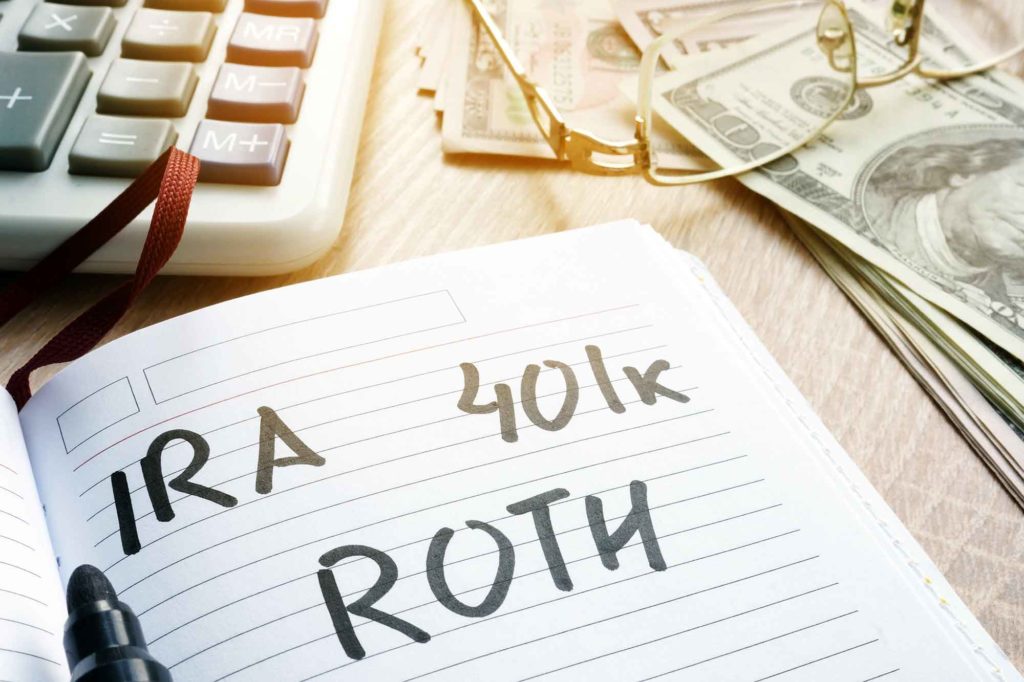
Home » Insights » Retirement » Required Minimum Distribution Changes for 2020
Required Minimum Distribution Changes for 2020
Renée Pichette, CFP®
Wealth Advisor
Summary
Two important changes to required minimum distributions (RMD) from retirement accounts occurred in 2020 that could be beneficial to retirees. First, any distributions taken since January can be rolled back into your retirement account; and second, the age when you need to start taking RMDs from your retirement account has been increased from 70 ½ to 72. Find out how these changes may impact your cash flow needs and withdrawal plans for 2020.

RMD roll backs extended
If you took out a required minimum distribution (RMD) earlier this year but don’t need the funds, you still have time to roll back the money into your IRA or other defined contribution plans, like a 401(k) or 403(b). For 2020, all RMDs have been suspended due to the pandemic. So, if you took an RMD earlier this year, you can roll back any amount, up to the full RMD, into the account until August 31, 2020.
As a reminder, retirement laws passed at the end of last year changed the age when you need to start taking RMDs from your retirement account. This applies to anyone who is not already in RMD status. Now, you can wait until age 72 to take the RMD from your retirement accounts.
Here are some commonly asked questions we’ve heard from our clients:
How can I roll back my RMD?
Most custodians will accept a check with a letter of instruction if you want to roll back your RMD. In some cases, cash can be transferred directly from a taxable account or trust to an IRA.
Will I incur capital gains in a taxable account to free up cash?
If you previously reinvested your RMD in a taxable account, it is possible that you will have to realize some capital gains. Talk to your advisor and see what the capital gains may look like if you choose to liquidate some investments.
How will this impact my future RMDs?
Your annual RMD is a calculation based on your age and the balance in your tax-deferred account at the end of the previous year. For example, your 2021 RMD will be based on your age and the account balance as of December 31, 2020. By returning your 2020 RMD, you will increase your total RMD for 2021, compared to what it would have been if you didn’t return the RMD.
I have an inherited IRA. Can I return my RMD?
Yes. The IRS added the ability to return RMDs from inherited accounts; this is a change from the original CARES Act.
What about my tax withholding?
You are unable to retrieve money that was previously withheld for federal or state taxes. If you decide to return the net amount received from your RMD, the amount of tax withholding will be considered a taxable distribution. You also may elect to return your gross RMD. If you do so, you will need to use funds from other sources to return the withheld amount. The withholding sent to the IRS can cover taxes from other sources, including other income, capital gains, Roth conversions, etc., lower your estimated tax payments, or may be returned as a refund in 2021.
Should I return my RMD?
There is no single right answer except what is right for you given your circumstances. Since these distributions are considered ordinary income, skipping the distribution can help you save on income taxes, although the total amount of savings will vary. As mentioned above, your RMD calculation is based on your age and the balance in your retirement accounts at the end of the previous year. If your account balance has declined since then—which may be likely given the pandemic-driven losses in the financial markets—rolling back the funds into your retirement accounts can help protect your cash flow and income.
As an example of potential tax savings, assume an individual is in the 22% federal tax bracket, has a required minimum distribution of $20,000 for 2020, took the distribution in January, and had 22% of the distribution withheld for federal taxes. The individual would have a gross distribution of $20,000 and a net distribution of $15,600 distributed to them, adding approximately $4,400 in taxes on their 2020 federal income tax return. Since the funds received were not needed for regular cash flow, the individual decided to roll the net amount of $15,600 back into their IRA. As a result, the tax withholding of $4,400 from the original distribution is the only amount distributed from the IRA and will still be considered an IRA distribution. A distribution of $4,400 costs a taxpayer in the 22% tax bracket $968. The remaining $3,432 can be used to cover taxes from other income sources or may be returned as a refund when 2020 taxes are filed.
With a lower taxable income from skipping or returning your RMD, you may be in an ideal situation to do a Roth conversion or take additional capital gains. As always, check with your advisor and tax preparer if you’re unsure what decision is best for your overall situation.
Mercer Advisors Inc. is the parent company of Mercer Global Advisors Inc. and is not involved with investment services. Mercer Global Advisors Inc. (“Mercer Advisors”) is registered as an investment advisor with the SEC. The firm only transacts business in states where it is properly registered, or is excluded or exempted from registration requirements. All expressions of opinion reflect the judgment of the author as of the date of publication and are subject to change. Some of the research and ratings shown in this presentation come from third parties that are not affiliated with Mercer Advisors. The information is believed to be accurate, but is not guaranteed or warranted by Mercer Advisors. Content, research, tools, and stock or option symbols are for educational and illustrative purposes only and do not imply a recommendation or solicitation to buy or sell a particular security or to engage in any particular investment strategy. For financial planning advice specific to your circumstances, talk to a qualified professional at Mercer Advisors. Past performance may not be indicative of future results. Therefore, no current or prospective client should assume that the future performance of any specific investment, investment strategy or product made reference to directly or indirectly, will be profitable or equal to past performance levels. All investment strategies have the potential for profit or loss. Changes in investment strategies, contributions or withdrawals may materially alter the performance and results of your portfolio. Different types of investments involve varying degrees of risk, and there can be no assurance that any specific investment will either be suitable or profitable for a client’s investment portfolio. Historical performance results for investment indexes and/or categories, generally do not reflect the deduction of transaction and/or custodial charges or the deduction of an investment-management fee, the incurrence of which would have the effect of decreasing historical performance results. Economic factors, market conditions, and investment strategies will affect the performance of any portfolio and there are no assurances that it will match or outperform any particular benchmark. This document may contain forward-looking statements including statements regarding our intent, belief or current expectations with respect to market conditions. Readers are cautioned not to place undue reliance on these forward-looking statements. While due care has been used in the preparation of forecast information, actual results may vary in a materially positive or negative manner. Forecasts and hypothetical examples are subject to uncertainty and contingencies outside Mercer Advisors’ control. Mercer Advisors is not a law firm and does not provide legal advice to clients. All estate planning documentation preparation and other legal advice is provided through its affiliation with Advanced Services Law Group, Inc.

